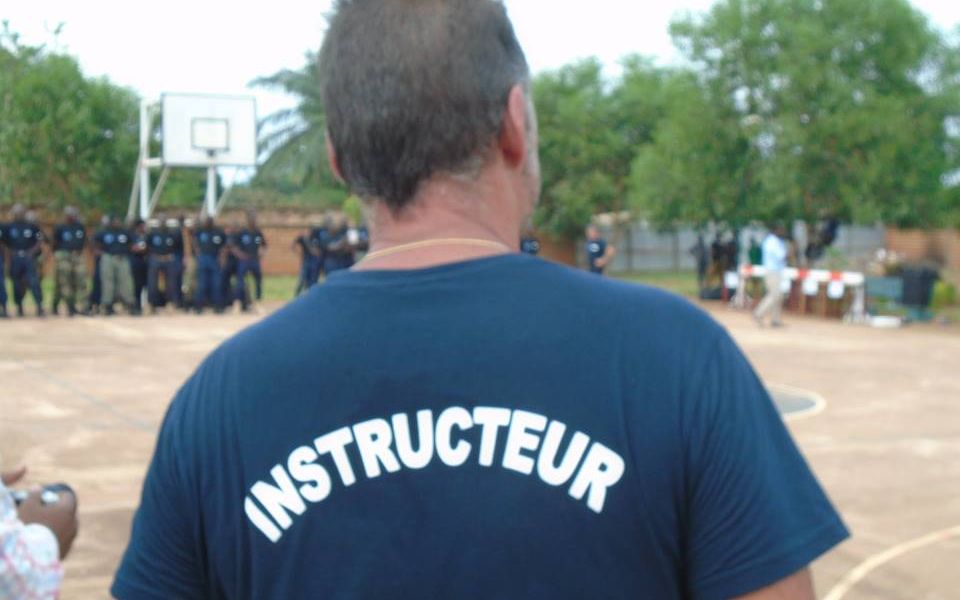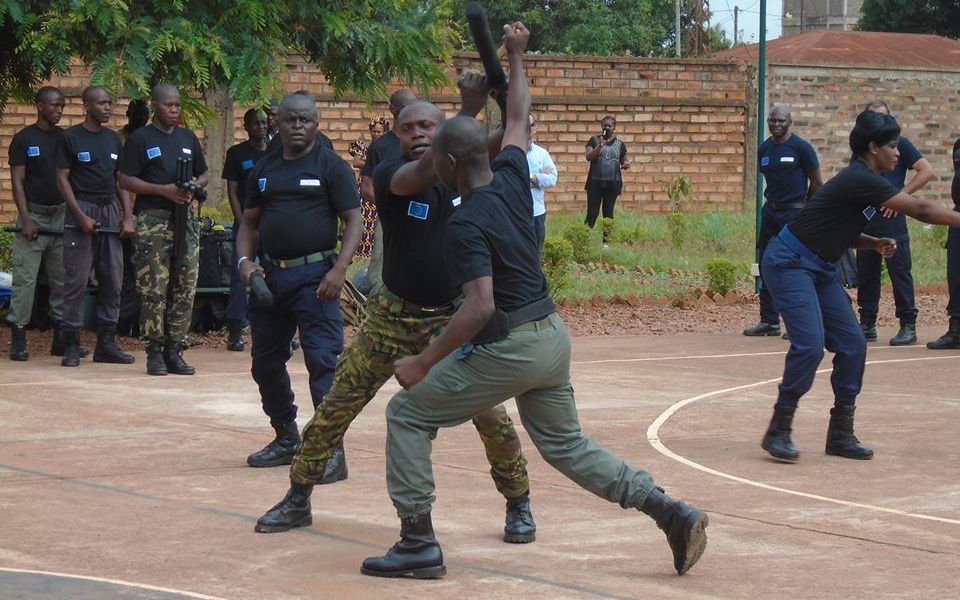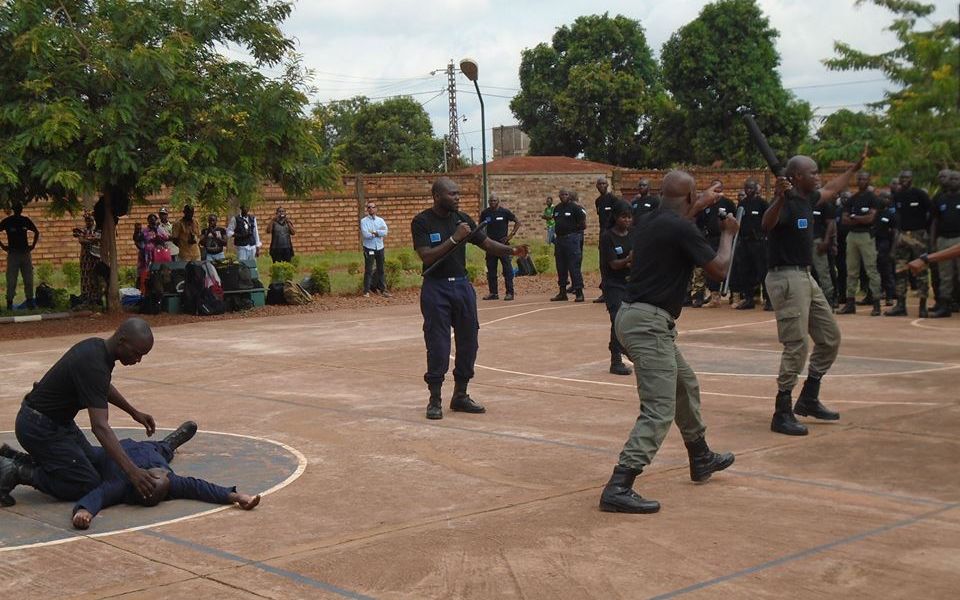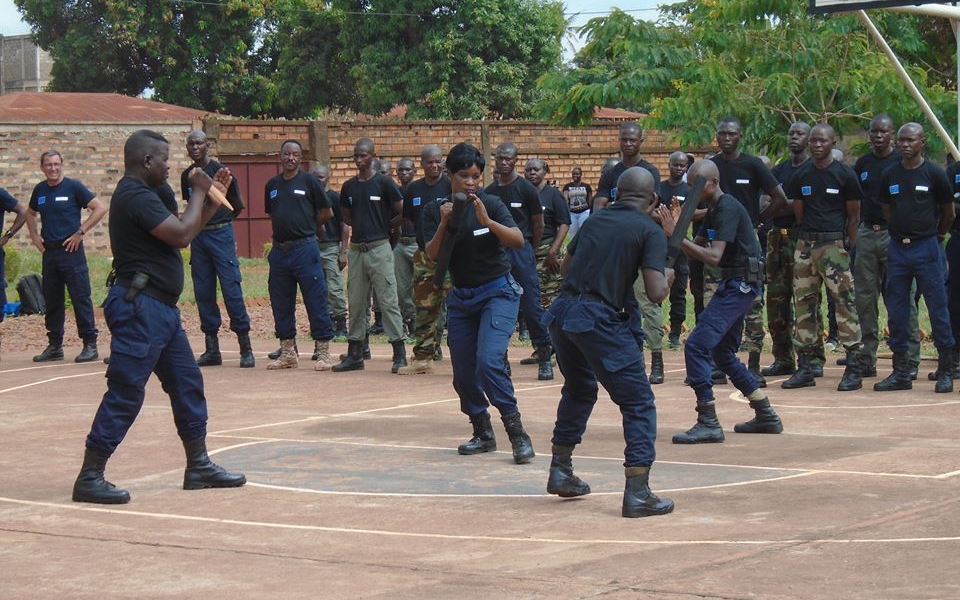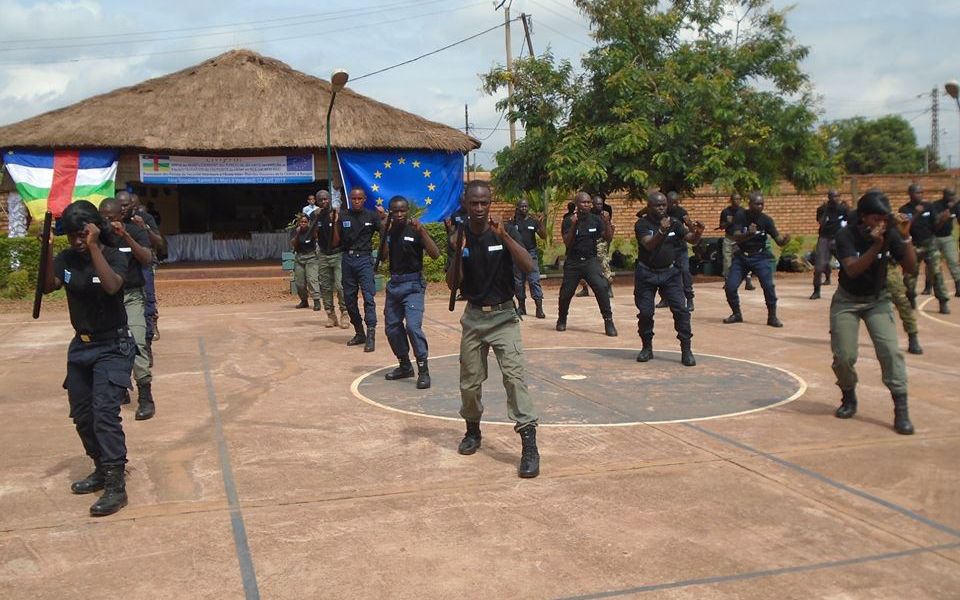Support for the redeployment of national security forces and restoration of state authority
In 2013 the Central African Republic was the stage for violent clashes, however, with the election of President Faustin Archange-Touadéra in March 2016 it succeeded in ensuring a democratic transition.
In November 2016 the National Security Policy (PNS – Politique Nationale de Sécurité) was adopted. While defining the strategic guidelines for a return to security in the country, the policy underlines that the inability of the National Security Forces (NSF), together with a lack of recognition for the utility of their work, to protect the population in times of crisis is one of the main drivers of citizens’ lack of trust in the Central African State.
In emergency situations the immediate security deficits in Bangui are now covered as a result of the actions jointly undertaken by the Central African Government and its international partners. However, the situation in the rest of the country is still very problematic and the current relative stability will only be temporary if action is not taken to ensure a return to State authority.
Background
In August 2018 as peace had returned to the length of the Béloko (on the border with Cameroon) - Bangui corridor it was considered appropriate to ramp up the State’s presence on the ground. The NSF (e.g., police stations, gendarme brigades, customs services and mobile surveillance brigades) are endeavouring to perform their duties despite almost complete destitution (very few vehicles, no radios, etc.). At the same time local and regional authorities are struggling to provide basic services due to a lack of equipment and human and financial resources.
Restoring the Rule of Law is targeted through an action which combines deploying NSF and strengthening the local and regional authorities. The first step in developing the Rule of Law is protecting property which is guaranteed through the presence not only of the police but also a judicial system together with active local and regional authorities.
Project aims
Contribute to stabilising CAR’s security situation and restoring State authority through the redeployment of National Security Forces and public administration.
More specifically:
- Support the redeployment of National Security Forces along the Béloko - Bangui corridor.
- Offer support for training, equipment, and the functioning of public administration along the corridor.
- Contribute to restoring the trust of those populations living in the deployment zone through information and awareness-raising of the security forces’ return and the restoration of basic public services.Training and equipping of roughly 800 NSF personnel.
Main activities
- Training and equipping of roughly 800 NSF personnel
- Provision of vehicles for the redeployment of NSF along the corridor (30 P4 off-road vehicles, 8 TRM 2000 trucks and 39 motorbikes)
- Reinstatement and equipping of 7 checkpoints along the corridor
- Reinstatement of the Bouar inter-force communications centre which coordinates NSF interventions in the region
- Building of a mixed training centre in Bouar to create a second starting point for future redeployments
- Implementation of training programmes for public administration officials
- Provision of equipment and light renovation of the public administration services in the project area
- Interviews of communities along the corridor to collect and assess the extent of the population’s trust in the actions of the Central African State
- Launch of an awareness-raising and information campaign on the role of the NSF and the local and regional authorities to strengthen the State’s visibility
- Support for dialogue and consultation platforms between the NSF and the communities at both the local and the prefectural level
The project in figures
€8.11m
Budget
3
Full-time experts
4
Ministries involved
Chronology
-
October 2018
Start of the project
-
December 2018
First management committee and opening ceremony
-
February 2019
Call for tenders opened
Call for tenders open for: - aprocurement of equipment and uniform for the NSF - procurement of vehicles - tbuilding and renovation works - procurement of communication materials
-
March 2020
End of project
